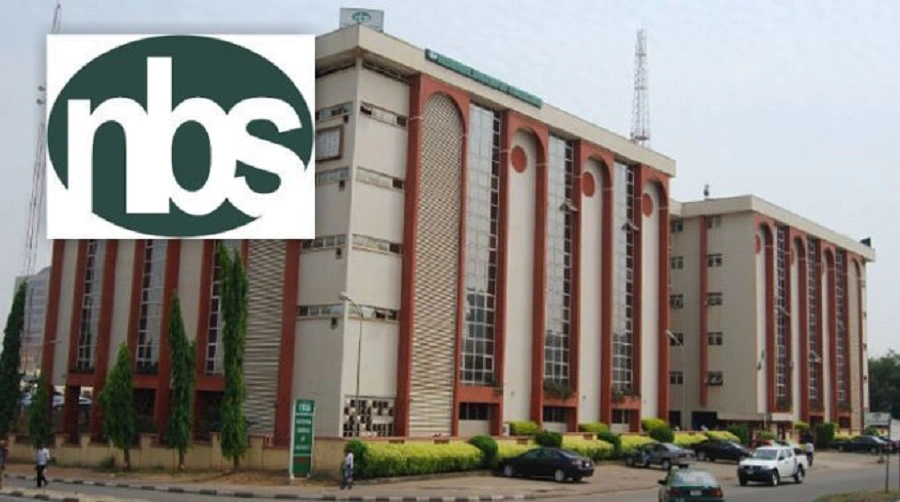-
Why figure was low – Expert
The National Bureau of Statistics (NBS) has stated that 5.4 per cent of Nigerians (4,792,296) under the working-age population were unemployed in the year 2023.
The NBS had last year adopted a new methodology for its labour survey, defining those that are in the labour force to be 15 and above that are willing, available, and able when the survey is conducted.
Also, those that would be categorised as unemployed would have worked at least one hour from the previous seven days the survey would be conducted, which is a departure from the 20 hours the old method carried.
The NBS released its figure just as experts attributed the reduced figure to the new methodology adopted by the government.
In a statement to announce the publication of the 2023 Annual and Q1 2024 Nigeria Labour Force Survey (NLFS) results on Tuesday, the NBS said 116.6 million, representing 53.8% of the total population, are in the working age group.
The statement signed by NBS’ Director of Communications and Public Relations, Sunday. J Ichedi, said women accounted for 52 per cent of this population, with men at 48 per cent.
While noting that 76.3 per cent, equivalent to 88.9 million individuals, participated in the survey, it said Bauchi State recorded the highest participation rate at 92.3 per cent, while Ekiti State had the lowest at 63.4 per cent.
It went on to state that the total working-age population in 2023, 84.1 million individuals were employed, including 20.6 million persons between the ages of 15 and 24.
It noted that 77.6 million individuals were engaged in informal employment, accounting for 92.2% of the employed population with Kano State having the highest number of informal workers, with about 5.2 million individuals engaged in informal employment.
“This is followed by Lagos State with 4.6 million people (excluding agriculture).”
“The headline unemployment rate at the national level was 5.4% in 2023. At the state level, Abia recorded the highest unemployment rate at 18.7 per cent, while Nasarawa had the lowest at 0.5%. In terms of educational attainment, the unemployment rate was highest at 9.4 percent among persons with post-secondary education. This was followed by those with secondary education at 6.7 per cent, and those with primary education at 4.1 per cent. The rate was lowest for those with no formal qualification at 3.2 per cent.”
The release stated that for the first quarter of 2024, the unemployment rate increased to 5.3 per cent from 5.0 percent in Q3 2023 with urban areas accounting for 6.0 per cent unemployment rate and rural areas having 4.3 per cent.
“The labour force participation rate among the working-age population declined to 77.3 per cent in Q1 2024, from 79.5 per cent in Q3 2023. The employment-to-population ratio was 73.2 percent in Q1 2024. This is a decrease of 2.4 percentage points compared to a ratio of 75.6 percent in Q3 2023.”
It added that the proportion of workers in wage employment rose to 16.0 per cent in Q1 2024, a 3.3 percentage point increase from 12.7 per cent in Q3 2023.
“By gender, 20.1 per cent of males were in wage employment, compared to 12.1 per cent of females. Wage employment was also higher in urban areas, at 21.8 per cent than in rural areas, where it stood at 8.1 per cent.
“The unemployment rate among youth aged (15-24 years) was 8.4 percent in Q1 2024, a decrease of 0.2 per cent compared to Q3 2023 (8.6 per cent).”
“Nationally, 1.5% of employed Nigerians spent between 1-9 hours in a week, 4.8 percent spent between 10-19 hours in a week, approximately 25 per cent worked between 20-39 hours, 22 per cent between 40-48 hours, and the 46 per cent worked 48 hours and above in a week.”
Speaking with Daily Trust, the Chief Economist with SPM Professionals, Paul Alaje, said the low unemployment rate is due to the new methodology adopted by the NBS.
Daily Trust recalled that a former Statistician General of the Federation, Yemi Kale opposed the new methodology, saying he resisted the urge to adopt the methodology.
However, Alaje added that with 92.2 percent of the Nigerian workforce in the informal sector, the new minimum wage will not have any impact on a large number of Nigerians.
He stated that the refusal of the government not to make decisions based on data does not bode well for Nigeria’s economy.


